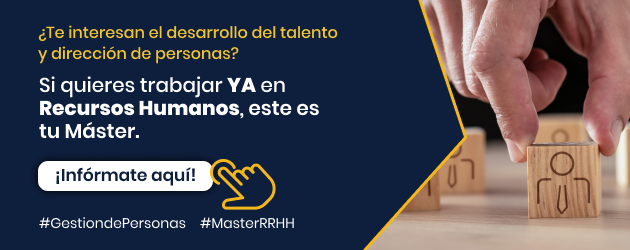Our HR Expert teacher and HR Manager at Vecttor, Raquel Doblado Morato, in it Master in HR Management of the EIP International Business School He writes to us about the position of health surveillance.
For years, article 22 of the Law 31/1995, of November 7, on Prevention of Occupational Risks, which contemplates the obligation of the employer to monitor the health of his workers in order to protect them, has raised controversy. And this obligation directly limits the worker's right to privacy.
To position ourselves, we must first know how compliance with the business obligation of health surveillance works in practice. It usually translates into carrying out a medical examination for workers on a periodic and voluntary basis, and this is where the point to be discussed is found, the principle of voluntariness that governs this business obligation.
This principle of voluntariness implies and allows the worker to expressly consent, through a document provided by the company, to undergo a medical examination that is assigned in relation to his or her job; tests that must always be proportional to the risk to which the worker is exposed and must cause the least possible inconvenience. According to this, the worker can voluntarily accept or decline the company's medical examination, thus covering the company's obligation to monitor health, and at the same time protecting the right to privacy of the worker who decides not to undergo the examination.
Although it is true that this principle of voluntariness is not absolute, and that is where the controversy comes into play.
At what point can this voluntariness and therefore the worker's right to privacy be suppressed or limited?
The same article 22 already delimits these cases in which it is suspended; These are very specific occasions, and they can be summarized in three exceptions:
- “Those in which carrying out the examinations is essential to evaluate the effects of the working conditions on the health of the workers.”
- “To verify whether the worker's health status may constitute a danger to himself, to other workers or to other people related to the company.”
- “When this is established in a legal provision in relation to the protection of specific risks and especially dangerous activities.”
These three exclusions have been shaped by jurisprudence, delimiting the suppression of voluntariness solely due to the existence of an obvious risk, “objectifiable risk or danger” (STS of June 10, 2015, Rec. 178/2014), a trend that is reaffirmed in the subsequent STS of March 7, 2018, Rec. 42/2017, estimating the need to suppress voluntariness in health surveillance of security guards and bodyguards.
Regarding the time dedicated to carrying out the medical examination, it must be carried out at the beginning of the employment relationship, and renewed periodically, but should these renewals be done within or outside of the working day? About this recently the National Court in its Judgment of March 2, 2020 (rec. 279/2019) concludes that carrying out the medical examination should be considered working time; "We must conclude that these medical examinations, despite their voluntary nature, should never entail a burden, cost, or negative or harmful consequences for the worker. They should generally be carried out during working hours. When they are carried out outside of these hours, the time invested must be considered as effective working time, and therefore, compensation must be paid."
Once the medical examination has been carried out on the worker, the results are kept with all the precautions in place by the doctors and are provided to the worker. At this point, the company will only receive a report on the worker's aptitude on the position he or she is going to perform, thus ensuring the safeguarding of the right to privacy of the examined worker, while protecting both him and the rest of the team or personnel. concurrent.
Once the operation of the obligation to monitor the health of workers in a context prior to COVID-19 has been summarized.
What role will it play now in our immediate future?
In the now known as the new normal that COVID-19 leaves us with, this point takes on special interest and relevance in the company since the debate opens on whether or not the company can limit the privacy of the worker by suppressing the voluntary surveillance of health, in favor of the common good, imposing the mandatory nature of carrying out a medical examination.
Taking into account one of the exceptions contemplated in art. 22 “To verify whether the worker's health status may constitute a danger to him or herself, to other workers or to other people related to the company.", it seems clear that the company can defend through these lines the mandatory nature of carrying out the medical examination, limiting the principle of voluntariness that generally governs.
Practice that seems to be in line with the most recent jurisprudence already cited, and with the support of the guidelines that the Executive is publishing, an example of this could be the report of “Procedure of action for occupational risk prevention services against exposure to SARS-CoV-2”.
In short, it seems that the company, under the power of management, must shape the decision of whether or not to make medical examinations of its workers mandatory depending on the risk of exposure that is evaluated in each case and in the terms of the interpretative note on exposure risk scenarios provided by the Ministry of Health. In this way, it seems that, in the absence (for the moment) of a regulatory provision that regulates the possible exception to the principle of voluntariness in this new situation, the company, together with the prevention service, assumes the responsible role of evaluating the positions. of work and their level of risk of exposure to the new coronavirus to determine whether or not it is mandatory to perform a medical examination.
Raquel, in her two subjects she deals with topics of great importance for companies, if you want to be an expert,We are waiting for you at your School!




































